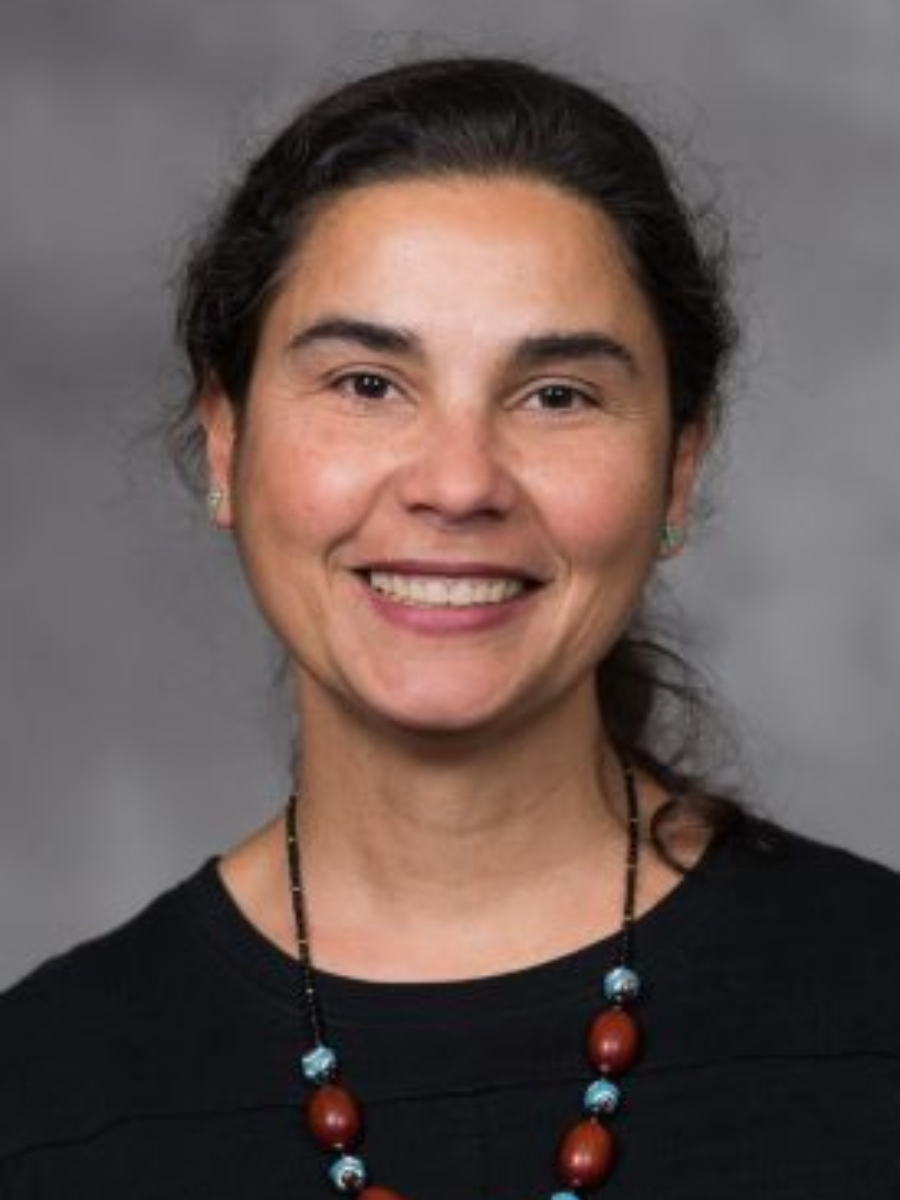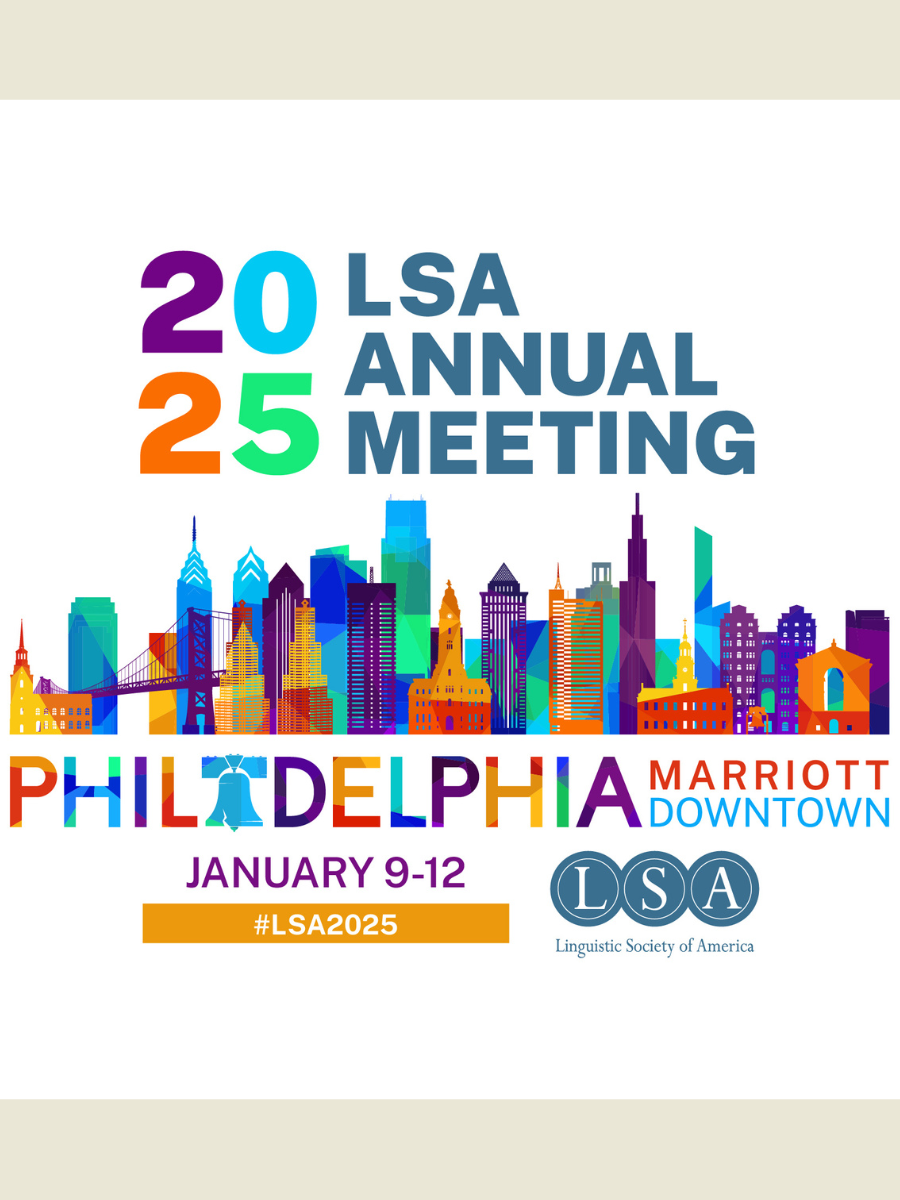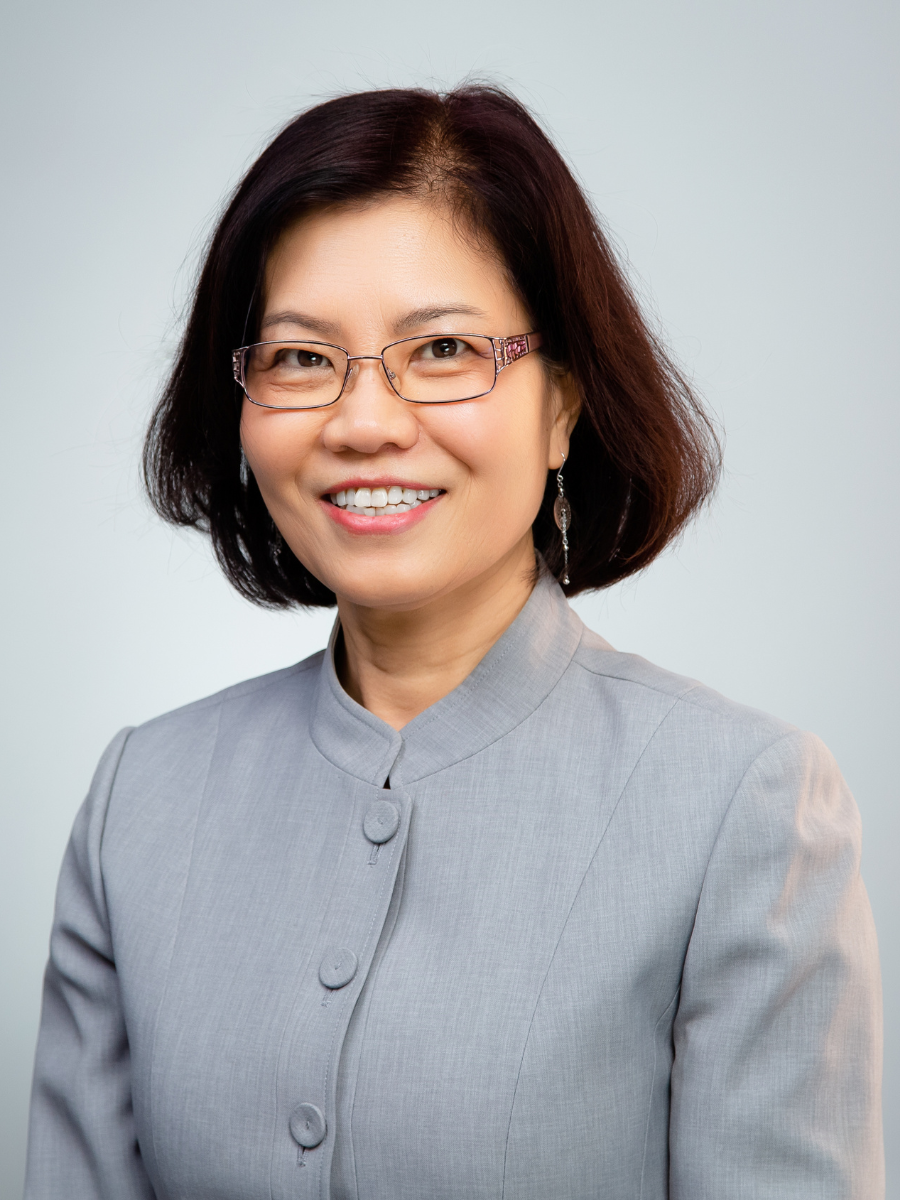News from Sibling Organizations
June 2024 AAALetter
Table of Contents
-
Linguistic Society of America Turns 100 | Marlyse Baptista
Linguistic Society of America Turns 100
Marlyse Baptista, University of Pennsylvania
President, Linguistic Society of America (LSA)
Founded in 1924, the Linguistic Society of America (LSA) is turning 100 years old this year!
The Society started 2024 with a kick-off Centennial celebration in New York City in January in the context of its Annual

Linguistic Society of America
Meeting. The themes of the plenaries focused on how far the Society has come in the past 100 years (“Why a linguistic society?: Foundation of the LSA in the age of scientific racism” by Margaret Thomas), on reimagining language documentation and teaching for Native American languages (“Engaging Native American protocols for teaching linguistics” by Wesley Leonard), and on building advocacy in linguistic scholarship in the age of artificial intelligence (“What we can do with what we know about how language works” by Emily Bender). The presidential address reflected on the richness and intricacies of linguistic systems as human achievements of intellect, expression, and poetry (“Seeing linguistic systems as intellectual, aesthetic, and expressive achievements” by Anthony Woodbury).
As it celebrates its 100 years of existence, the members of the Society are deeply engaged in a reflection about its past and its future, as we are all contributing to the vision of the LSA of tomorrow.
The LSA mission
The LSA members include linguists in academia as well as linguists who work in practice settings such as government, non-profit organizations, and industry. The key mission of the LSA is to advance the scientific study of language. The LSA plays a critical role in supporting and disseminating linguistic scholarship to linguists and to the general public for the advancement of knowledge and the betterment of society. On this latter point, the LSA stands firmly behind the idea that all languages (and language varieties) and their speakers are created equal and are deeply creative. As such, all languages are suitable for scholarly production, dissemination, and public communication, and using them in all domains of life is part of speakers’ basic human rights (Lippi-Green, 2012).
The LSA recently launched a brand-new website for the benefit of all its members and beyond.
Continuing professional development for all linguists
The LSA Annual Meeting, held in early January in a major U.S. city, is a vibrant gathering of linguists and linguistics students from throughout the profession and around the world. It offers an unparalleled opportunity to share research (including the scholarship of teaching and learning in linguistics), to engage in professional development, to network, and to socialize with linguists who work in academia, industry, government, and the nonprofit world.
The Annual Meeting includes activities geared toward professional development for linguists at all stages of their careers and contains many programs and events of interest to students, who make up one-third of attendees. The LSA also offers year-round webinars which have the goal of continuing to inform and educate members at all stages of their careers on diverse topics and research areas. Our 2025 Annual Meeting will be held in Philadelphia at the Philadelphia Marriott Downtown.
The LSA and its sister societies
The LSA’s sister societies are a vital and valued part of the LSA Annual Meeting. The groups of scholars who frequently choose to co-locate their meetings with the LSA Annual Meeting include the following:
- American Dialect Society (ADS)
- American Name Society (ANS)
- North American Association for the History of Language Sciences (NAAHoLS)
- North American Research Network in Historical Sociolinguistics (NARNiHS)
- Society for Computation in Linguistics (SCiL)
- Society for Pidgin and Creole Linguistics (SPCL)
- Society for the Study of the Indigenous Languages of the Americas (SSILA)
The Language, Conflict, and Peace-Making Initiative
In this centennial year, we are pursuing a new initiative entitled “Language, Conflict, and Peace-Making.” At this time in our country and the larger global community, many of us are struggling to find ways to talk to each other about conflicts, whether they are occurring in the United States or abroad. As a result, our conversations often leave us polarized and divided, while doing little or nothing to help resolve the critical issues at the heart of those conflicts.
The LSA Executive Committee has held a series of discussions regarding how the insights, tools, and empirical findings of linguistics could be highlighted, organized, and engaged so as to illuminate the ways language can be used as a tool to provoke conflict and drive polarization or to build bridges for peace-making.
Four ideas have emerged from those conversations that could perhaps build on one another. They are broad ideas for a collaborative, inclusive approach that begins by working locally, with awareness of the global context. The Executive Committee has empowered the Secretariat and the President to continue developing these ideas, identifying individuals interested in contributing to them, and working toward implementation of those ideas that emerge as viable, including the following: (1) develop a curated set of peer-reviewed linguistics articles and books, (2) write a collaborative scholarly article that could possibly draw on the articles and books in the proposed resource collection, (3) propose an organized session that would focus on language, power, conflict, and peace-making at the 2025 Annual Meeting, and (4) consider whether a broadly supported statement might emerge as a result of the previous actions.
Get involved

Center for Applied Linguistics: Promoting Language Learning and Cultural Understanding
Liying Cheng (程李颖), City University of Macau
Chair, Board of Trustees, Center for Applied Linguistics (CAL)

Center for Applied Linguistics
The Center for Applied Linguistics (CAL) is a nonprofit organization promoting access and equity in education and society for linguistically and culturally diverse people around the world. CAL enjoys an international reputation as a trusted source for research, resources, and policy analyses related to language learning and assessment, immigrant and refugee integration, and other critical issues involving language and culture.
Founded in 1959 in response to issues of language diversity, interest in U.S. and international language policy, and the emergence of English as a world language, CAL was established by a grant from the Ford Foundation to the Modern Language Association to serve as a liaison between the academic world of linguistics and the practical world of language education and language-related concerns. Since its inception, CAL has played a leading role in conducting research on language use, language learning, and effective teaching methods as well as translating research into practical applications to help language learners succeed.
Today, CAL has an operating budget of $13.3 million with long-term collaborative relationships with many organizations, including the American Association of Applied Linguistics (AAAL), the TESOL International Association, the National Association for Bilingual Education (NABE), and many more.
CAL has a staff of highly qualified researchers, educators, and assessment specialists, many of whom are recognized leaders in their fields and actively engage with the above-mentioned scholarly associations. CAL’s programmatic activities focus on applying insights gained from the study of language and culture to the challenges of our changing global society. CAL’s collaborative infrastructure allows CAL staff to work closely together, sharing knowledge and capabilities to respond quickly and effectively to changing needs. Areas of impact include the following:
- Adult literacy and language education,
- Dual language and multilingual education,
- Immigrants and newcomers,
- International language education,
- PreK–12 English language learner education,
- Testing and assessment, and
- World languages.
The Board of Trustees, composed of leaders in language education and related fields, provides guidance and direction to accomplish our mission. A recent initiative, now in its fourth year, jointly conducted by the Board and CAL staff, is a series of 30-minute webinar episodes called “Research to Policy: Critical Conversations in Language Education.” In this series, we are imagining a world that takes an assets-based approach when working with multilingual learners. And we believe that a more equitable perspective can—and must—guide local, state, and national policy across different educational settings. To address this consistent challenge to break down barriers for multilingual learners, this series holds live discussions open to the public highlighting the researchers, practitioners, and policymakers on the front lines fighting for educational equity for all language learners in the U.S. and globally.
CAL has a set of core values that guides the organization’s endeavors. They reflect CAL’s strong commitment to promoting access, equity, and mutual understanding for linguistically and culturally diverse children, youth, and adults around the world:
- Languages and cultures are important individual and societal resources.
- All languages, dialects, and cultures deserve to be respected and cultivated.
- Multilingualism is beneficial for individuals and society.
- Effective language education should be widely available.
- Accurate information should be the basis for policies and practices that involve language and culture.
- Language skills and cultural knowledge should be valued in work situations.
- Language and cultural differences should not be obstacles to personal or group success or well-being.
Dr. Charles A. Ferguson, CAL’s founder and first director, was a pioneer in the field of applied linguistics. The Charles A. Ferguson Award for Outstanding Scholarship was created to honor the life and legacy of the man who, among his many accomplishments, founded CAL and established the Department of Linguistics at Stanford University. Many of our awardees are AAAL members and leaders.
On April 25, 2024, the Board of Trustees of CAL was delighted to announce Dr. Diep Nguyen as the incoming President and Chief Executive Officer of the organization, starting in July 2024. Dr. Nguyen is preceded by Dr. Joel Gómez, who, for the past seven years, has significantly advanced CAL’s sustainability, legacy, and mission. Dr. Gómez’s lifelong research, policy, and practice accomplishments in higher education and public education have advanced equity in multilingual education and earned him the Ramón Santiago Award from the National Association for Bilingual Education (NABE) in 2018 and the Lifetime Achievement Award in 2022.
Dr. Nguyen is a visionary, deliberate, and passionate leader. She brings to CAL a strong scholarly record and an exemplary commitment to teachers, communities, and students. Her lived experiences as a refugee and multilingual learner are key assets that have shaped her scholarly and professional leadership. Dr. Nguyen comes to CAL after three decades of leadership in K–12 settings and institutions of higher education in the U.S. Most recently, she was Senior Director of Research and Academic Outreach for WIDA at the University of Wisconsin-Madison.
With this successful leadership transition, the Center of Applied Linguistics is in a strong position to continue its mission to advocate and support solutions for student populations through “language and culture as they relate to access and equity in education and society around the globe.”
